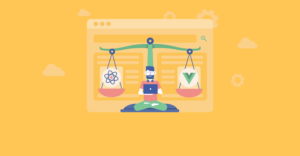When hiring web developers, it is essential to ask the best possible questions. After all, by clarifying what you need to know now, you have a better chance of working with someone who completely understands your project and is able to provide your customers with the experience that they actually deserve. Gathered below are a number of important questions to ask web app developers that should ideally never go unanswered:
- How much experience do you have in web application development?
- What makes you different from other software development providers?
- How do you handle the difficulties and issues related to working with remote clients?
- Industry-wise, what is your main area of expertise?
- Do you only develop from scratch or can you improve an app I already have?
- What kinds of projects have you taken on in the past? What were some of the most memorable or challenging ones?
- What technologies do you employ in your projects?
- What cloud or infrastructure platforms do you have the most experience with? Which ones do you prefer to work with and why?
- What kind of research do you conduct before beginning to build a web application?
- Do you make use of any prefabricated components and libraries or are all of your web apps built from scratch?
- Will I own my own web application’s code?
- How do you structure your development teams?
- What is the expected cost of end-to-end development?
- Do your services come with a warranty?
- What is your company’s development process?
- How much involvement will I have throughout the project and how closely will you work with our company?
- How will we communicate during the development process?
- What assets will we need to supply and what do you need to begin your work?
- How will you test the web application before it goes live?
- How do you handle hosting, security, maintenance and support?
- How long will it take you to complete my project?
- Can you show me some examples of web applications you have worked on in the past?
- May I speak to some of your clients?
- Who will pay for defect fixes after project delivery?
- How often can you deliver changes to our live production systems?

1. How much experience do you have in web application development?
Experience isn’t all that matters, but it is certainly still important. After all, the longer your candidate have been in business, the wider their general outlook and potential in-depth understanding. So with this in mind, the software company you choose to work with should probably have five or more years under its belt. Nevertheless, bear in mind that beyond experience with web app development, it is also worth paying attention to the types of solutions they have built in the past, the average load on said applications (e.g. if they were high-load), whether they were single-tenant or multi-tenant apps, among other significant factors.
2. What makes you different from other software development providers?
Most software companies will typically respond to this question by mentioning something that they pride themselves on. As a result, this is a great way to establish mutual priorities. In our view, for instance, nothing quite sets us apart like our full-stack approach to development, as we believe that it provides our customers with a broad range of expertise and talent and is potentially the most efficient way to run a web project in this day and age.
3. How do you handle the difficulties and issues related to working with remote clients?
How your would-be provider organises their work with clients should be of paramount importance to your organisation. So by asking them this question in particular, you can assess the way their processes and remote work are coordinated, in addition to the transparency of the process, how expectations are both set and aligned, whether they are reviewed on a regular basis, and if results are presented frequently and frequent feedback is upheld or discouraged.
4. Industry-wise, what is your main area of expertise?
It is best to find out early how much a vendor knows about your industry, as this will likely save you a lot of time in the long run. For example, if you operate in the healthcare sector, then a supplier with a similar background will not only be familiar with key business concepts and terminology, but also the state of affairs in the industry — regarding policies, regulations, requirements, market leaders, API providers and others. Nonetheless, while these are certainly some nice-to-have features, they may not be an absolute necessity if your project is biased towards more technical aspects. In such cases, therefore, high proficiency in technologies should prevail over business domain familiarity.
5. Do you only develop from scratch or can you improve an app I already have?
Developing an application from scratch and improving an existing solution are in reality two very different things. So it is important to discover now if the potential supplier will be up to the task. Just remember that the ability to improve an existing system usually indicates greater skills and experience. Consequently, if a company readily suggests scrapping an existing application entirely, then it would probably be sensible to obtain an alternative opinion and understand if that is really the only option.
6. What kinds of projects have you taken on in the past? What were some of the most memorable or challenging ones?
The company’s answer should not only reveal their attitude towards the projects they have worked on in the past, but it may also serve to demonstrate how they solve real business problems. So as always, pay close attention to their response and look out for potentially similar issues that you expect them to also encounter in your project or business.
7. What technologies do you employ in your projects?
You should be listening for the technologies that your development project is (or is intended to be) based on. Beyond this, however, look closer by asking yourself if your would-be supplier is a fervent advocate of a single technology. Of course, this could mean that they are actually choosing the right tool for the job, but are they pushing for the only technology they are familiar with? This takes a measure of discernment, but trust your instincts and ask more pertinent questions if required.
8. What cloud or infrastructure platforms do you have the most experience with? Which ones do you prefer to work with and why?
It’s always good when a prospective supplier can offer an array of options to choose from as needed, as this enables maximum flexibility and ensures you find the right fit for your project. This is why — at least in general — vendor agnostic providers are preferable than those who follow a more dogmatic or brand-loyal approach to development. When not the case, however, this is usually because the vendor is offering great deals and substantial discounts through their own channel partnership arrangements. If this is the situation you find yourself in, make sure you are comfortable with vendor lock-in.
9. What kind of research do you conduct before beginning to build a web application?
As touched upon in question 4, your supplier should ideally understand the basics of your industry, but there are other things to think about as well. For example, what kind of technical research do they conduct (e.g. the best technologies for your web app, how the web app will handle the load, what would be the most suitable data type for the application, are there any issues in scalability, etc.)? Do they know about your brand and its unique identity? Do they research your target audience so as to cater to the end users’ needs? Going the extra mile to answer these questions could make a huge difference to your product’s success.
10. Do you make use of any prefabricated components and libraries or are all of your web apps built from scratch?
In any software project, one of the main objectives is to make the most of your limited resources. This is why — especially when a great solution already exists — it is often advisable not to attempt to reinvent the wheel. A good vendor will thus display a healthy balance between bespoke code and ready-to-use components (including frameworks, UI components, libraries and third-party services). Just beware of vendor lock-in and any IP rights you might be infringing on.
11. Will I own my own web application’s code?
Intellectual property ownership will always be a touchy subject, so it’s important to clear things up from the very beginning. Does the company say unhesitatingly that the code will be owned by the customer? Can their previous clients modify their projects? As long as the above are true, then you can probably trust the provider.
12. How do you structure your development teams?
Establishing a hierarchy or chain of command is essential to understanding how to communicate with your provider. The answer to this question might also help shed some light on whether they work as a cohesive unit. In any case, however, there are three essential elements when it comes to structuring a development team: skill set, motivation and efficient communication. So ask yourself the following questions: can you talk to the developers about a particular task’s specifics? Can you exchange ideas with the project manager by inviting them to your roadmap planning? Do you feel that these are highly motivated and enthusiastic individuals who will do everything in their power to ensure your project is a great success? For more on the importance of communication, refer to question 17 below.
13. What is the expected cost of end-to-end development?
Development prices vary widely, so it’s important to cover all bases. Are there any hidden costs of development? Any fees that you should be made aware of? When you say “end-to-end,” make sure you emphasise every aspect of it. In general, however, there are two approaches when it comes to costing development (project-based and ongoing) which may be charged on a fixed price or time-and-materials basis. While each setup will have its own drawbacks and benefits — even within the same software company — you should be able to craft the approach that will work best for your organisation. So with this in mind, depending on your software provider’s geographical position, a typical web-based MVP requires a budget between £12,800 and £50,000.
14. Do your services come with a warranty?
Mature software companies will offer warranties. These vary considerably depending on your approach to the budget and any underlying service-level agreements (SLAs) and will usually last between 30 and 60 days. Nonetheless, keep in mind that a reliable software partner should also offer post-production support and you should only embark on a project if you are happy with the terms and conditions.
15. What is your company’s development process?
Your project’s release schedule and any interaction you have with your supplier will unavoidably revolve around the development process, so whether they work with Scrum, Shape Up, Kanban, P3 Express, another Agile framework or even Waterfall, it is good to become acquainted with the expected development process.
16. How much involvement will I have throughout the project and how closely will you work with our company?
If you are serious about creating a successful product, then the developers you select for your project should work extremely closely with your in-house team. Crucially, they should feel like a natural extension to your own company — not just people hired to perform a task.
17. How will we communicate during the development process?
Anyone who isn’t willing to establish open, frequent lines of communication should raise a massive red flag. Instead, you should be able to contact your supplier as often as you like to check in, answer questions, and keep updated on the progress of your project. So keep an ear out for any live demos, so-called “lazy demos” (or shared recordings), and any other reports that are regularly provided. How often do these events take place and are they enough to keep a bad surprise at bay?
18. What assets will we need to supply and what do you need to begin your work?
Make sure you find out what exactly will be required from you and your company, including any indispensable resources. These will range from time commitments to specific types of equipment (e.g. specialised printers, hand-held or mobile devices, multiple scanners, laptops and the like), but it is crucial to establish early if you are able to fulfil these expectations.
19. How will you test the web application before it goes live?
How much testing goes into development itself? Do the potential suppliers have a dedicated Quality Assurance team? Do they perform unit tests, functional tests, acceptance tests, and automated tests for good measure as well? Remember that when it comes to software testing, less is never more.
20. How do you handle hosting, security, maintenance and support?
On this particular subject, you should know that vendors will often set up their own local development environments. Beyond here, however, they might also provide an integration and staging environment, help you to define and configure the production environment, register required third-party accounts and even acquire necessary licenses and certificates.
21. How long will it take you to complete my project?
Developers take different times to complete their projects. There’s nothing inherently wrong with that, but if you have a deadline for your web app’s completion, you should ensure that their productivity is in alignment with your expectations. So feel free to ask the vendor what their approach to planning is; What are some of the key milestones that they identified in your project? How exactly do they plan releases, do they consider dependencies on third-party teams, and will you have access to early results and be able to try them out as and when required?
22. Can you show me some examples of web applications you have worked on in the past?
They say a picture is worth a thousand words, but a live, working product is without a question even better. So don’t hesitate to demand more solid proof of your current candidate’s capabilities.
23. May I speak to some of your clients?
The best way to receive an honest, unbiased opinion about what it’s like to work with your potential provider is to talk to references and previous clients. If they seem unwilling to provide you with any contacts, by the way, then consider that another red flag!
24. Who will pay for defect fixes after project delivery?
Just like intellectual property rights, who should pay for bug fixes should ideally be negotiated prior to software development, as any unmatching expectations can cause significant problems later. But with this in mind, as explained in questions 13 and 14, the answer will depend on the type of budget and agreed warranty.
25. How often can you deliver changes to our live production systems?
This final question will not only assess the candidate’s agility but also serve to evaluate the efficiency of their team, the maturity of their processes and their ability to embrace state-of-the-art delivery pipelines. Just make sure to ask some follow-up questions as well, as they might also have a dedicated DevOps specialist at hand who can support project delivery and make sure everything goes as planned.
Bonus Question: How Do You Handle Post-Launch Support and Maintenance?
A crucial aspect often overlooked is post-launch support and maintenance. It’s important to ask how the developers handle ongoing support, including bug fixes, updates, and potential feature additions. Understanding their approach to long-term maintenance, response times for critical issues, and any additional costs involved ensures you are prepared for the full lifecycle of your web application. This question can help gauge the developer’s commitment to the project’s success beyond the initial launch.
The list of questions above should be used before signing any contract or making any hiring decisions. Don’t worry about asking too many of them either. The more you ask, the more you learn, and the information might save you from a veritable disaster!



